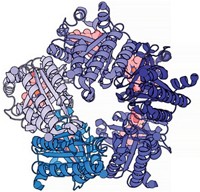Advertisement
Grab your lab coat. Let's get started
Welcome!
Welcome!
Create an account below to get 6 C&EN articles per month, receive newsletters and more - all free.
It seems this is your first time logging in online. Please enter the following information to continue.
As an ACS member you automatically get access to this site. All we need is few more details to create your reading experience.
Not you? Sign in with a different account.
Not you? Sign in with a different account.
ERROR 1
ERROR 1
ERROR 2
ERROR 2
ERROR 2
ERROR 2
ERROR 2
Password and Confirm password must match.
If you have an ACS member number, please enter it here so we can link this account to your membership. (optional)
ERROR 2
ACS values your privacy. By submitting your information, you are gaining access to C&EN and subscribing to our weekly newsletter. We use the information you provide to make your reading experience better, and we will never sell your data to third party members.
Environment
Formate Energizes Microbes
Some species of archaea can survive with only formate providing for their energy needs
by Jyllian N. Kemsley
September 20, 2010
| A version of this story appeared in
Volume 88, Issue 38

Some species of single-celled organisms called archaea can survive with only formate providing their energy needs, reports an international group led by Jung-Hyun Lee and Sung Gyun Kang of the Korea Ocean Research & Development Institute (Nature 2010, 467, 352). The work builds on a finding two years ago by Jan Dolfing and coworkers at Wageningen University, in the Netherlands, that communities of bacteria and archaea, each of which performed a different function, could also live off formate. Kim and colleagues determined that certain species of the Thermococcus genus of archaea survive by converting formate (HCOO–) to CO2 and H 2 and then coupling that reaction to adenosine triphosphate (ATP) synthesis. By studying gene expression in the microbes, the researchers propose that a formate dehydrogenase enzyme converts HCOO– to CO 2 and H+. A hydrogenase then turns the H+ into H while transporting additional H+ out of the cell. An “antiporter” protein brings H+ back into the cell while pushing out Na+. Finally, an ATP synthase uses the sodium gradient to drive ATP synthesis from adenosine diphosphate (ADP) and HPO4 2–.



Join the conversation
Contact the reporter
Submit a Letter to the Editor for publication
Engage with us on Twitter